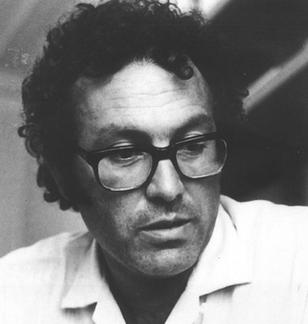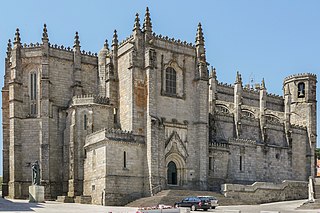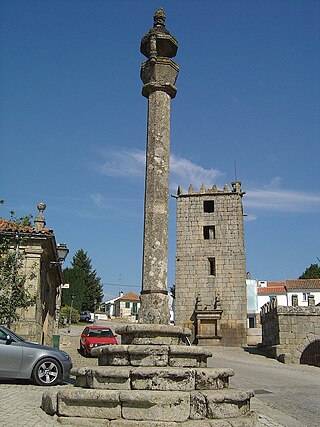José Cardoso was a Portuguese author of short stories, novels, plays, and political satire.

José Manuel Cerqueira Afonso dos Santos, known professionally as José Afonso and also popularly known as Zeca Afonso, was a Portuguese singer-songwriter. He is widely regarded as one of the most influential figures in the history of Portugal's folk and protest music scene. His music played a significant role in the resistance against the dictatorial Estado Novo regime, making him an icon in Portugal.

Sérgio de Barros GodinhoOL is a Portuguese singer-songwriter, composer, actor, poet and author.

The 5 October 1910 revolution was the overthrow of the centuries-old Portuguese monarchy and its replacement by the First Portuguese Republic. It was the result of a coup d'état organized by the Portuguese Republican Party.

José Hermano SaraivaGCIH • GCIP was a Portuguese professor, historian and jurist. He was most known as a television personality in Portugal, having been the author and presenter of several documentary series of historical divulgation from 1971 to 2003 on the Portuguese television.
The 2007–08 Taça da Liga was the first edition of the Taça da Liga, also known as Carlsberg Cup for sponsorship reasons.

Adriano José Alves Moreira, ComC GCC GOIH GCSE was a Portuguese lawyer, professor and a leading political figure in Portugal throughout the second half of the 20th century.

José António Afonso Rodrigues dos Santos is a Portuguese journalist, novelist and university lecturer. He has been one of the presenters of Telejornal, the evening news program on the Portuguese public television channel RTP1, since 1991. Since the 2000s he has published several thriller and historical fiction novels, becoming a best-selling author in Portugal.
The 2009–10 Taça da Liga was the third edition of the Taça da Liga, also known as Carlsberg Cup for sponsorship reasons. The first matches were played on 1 August 2009. The final was played on 21 March 2009, with Benfica defeating Porto 3–0 to win their second Taça da Liga. The final was played at the Estádio Algarve, Faro.

Alcains is a Portuguese civil parish in the municipality of Castelo Branco. The population in 2021 was 4615, in an area of 36.94 km². Alcains is located within the urban agglomeration of Castelo Branco - Covilhã - Guarda, situated 12 km to the north of Castelo Branco, 230 km to the northeast of Lisbon and 280 km southeast from Oporto, while 70 km to the west of the Portuguese-Spanish border and 380 km from Madrid). It is served by the A23_motorway_(Portugal) highway, by the EN18 and EN352 national roadways, and also a rail-line from Beira Baixa Linha_da_Beira_Baixa.

Castelo Branco is an inland city and municipality in Central Portugal. It has 34,455 inhabitants in its urban area (2021) and is the seat of the district of the same name. The municipality, with 52,272 inhabitants, is made up of 19 freguesias spread through 1,438.19 km2 (555.29 sq mi), making it the 3rd largest in Portugal by total land area.

Guarda is a city and a municipality in the District of Guarda and the capital of the Beiras e Serra da Estrela sub-region in central Portugal. The population in 2021 was 40,126, in an area of 712.10 square kilometres (274.94 sq mi) with 31,224 inhabitants in the city proper in 2006. Founded by King Sancho I in 1199, Guarda is the city located at the highest altitude in Portugal and one of the most important cities in the Portuguese region of Beira Alta. Serra da Estrela, the highest mountain range in continental Portugal, is partially located in the district. The city is served by national and international trains on the Beira Alta and Baixa railway lines. The present mayor is Sérgio Costa, as an independent. The municipal holiday is November 27.

The Castle of Folgosinho, is a medieval castle in the civil parish of Folgosinho, municipality of the Gouveia in the district of Guarda in the Centre region of Portugal.

The Pillory of Aguiar da Beira is a pillory located in the civil parish of Aguiar da Beira e Coruche, in the municipality of Aguiar da Beira, Portuguese district of Guarda.
The 2012 Prémio Autores was the third edition of the Prémio Autores. It took place on 27 February 2012 and was broadcast by RTP.

The Castle of Ródão is a medieval castle located in the civil parish of Vila Velha de Ródão, in the municipality of Vila Velha de Ródão, Portuguese Castelo Branco.

The Castle of Penamacor is a medieval castle located in the civil parish of Penamacor, in the municipality of Penamacor, Portuguese district of Castelo Branco.
António Pereira Cândido de Figueiredo, usually referred to as Cândido de Figueiredo was a Portuguese lawyer and civil servant by trade who later became well-known as a writer, lexicographer, grammarian, and philologist specializing in the Portuguese language.













